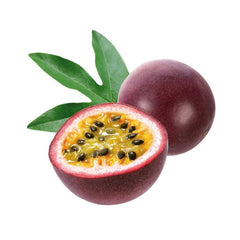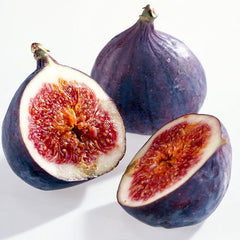What is the Difference Between Aquatic and Citrus Perfumes?
Click For Affordable Inspired Perfume Alternatives
Perfume enthusiasts often encounter a myriad of fragrance categories, each with its own unique scent profile and appeal. Among the most popular and frequently discussed are aquatic and citrus perfumes. While they may sometimes be confused or used interchangeably, these two categories possess distinct characteristics that set them apart. Understanding the differences between aquatic and citrus perfumes can help you choose the perfect scent for your personality, occasion, and season. In this article, we will explore what defines each type, their key ingredients, typical fragrances, and how to select the right one for you.
What is the Difference Between Aquatic and Citrus Perfumes?
Understanding Aquatic Perfumes
Aquatic perfumes, also known as marine or oceanic fragrances, are designed to evoke the fresh, clean scent of the sea. They aim to capture the essence of the ocean breeze, saltwater, and the invigorating feeling of being near the water. These scents are often associated with a sense of freshness, calmness, and clarity, making them popular choices for warm weather or casual wear.
Typically, aquatic perfumes feature notes that mimic the smell of the sea or aquatic environment. They tend to be light, breezy, and subtly complex, often blending fresh marine accords with subtle floral, woody, or aromatic elements. The goal is to create a scent that feels as if you are standing on a seashore, with water droplets in the air and a hint of salty sea spray.
Key Ingredients and Notes in Aquatic Perfumes
- Marine accords: Synthetic or natural notes that imitate the smell of the sea, such as seaweed, salty air, or ocean spray.
- Aquatic notes: Fragrance molecules like calone, which provide the fresh, watery scent.
- Fresh citrus: Lemon, bergamot, or grapefruit often complement aquatic accords, enhancing the freshness.
- Light florals: Jasmine, lily of the valley, or violet can add subtle floral hints.
- Woodsy and musk undertones: To add depth and longevity to the scent.
Popular Examples of Aquatic Perfumes
- Acqua di Giò by Giorgio Armani
- Davidoff Cool Water
- Blue de Chanel
- Issey Miyake L'Eau d'Issey
Understanding Citrus Perfumes
Citrus perfumes are characterized by their bright, lively, and zesty scent profiles derived from citrus fruits such as lemon, bergamot, orange, grapefruit, and mandarin. These perfumes are renowned for their invigorating and uplifting qualities, making them ideal for daytime wear, especially during spring and summer seasons.
The core of citrus perfumes is the fresh, tangy aroma of citrus fruits, which can be combined with other notes to create a wide variety of scent profiles—from sweet and fruity to sharp and tangy. They are often used to evoke feelings of energy, freshness, and cleanliness, and are popular among those who prefer a vibrant, energetic fragrance.
Key Ingredients and Notes in Citrus Perfumes
- Citrus notes: Lemon, bergamot, orange, grapefruit, mandarin, lime.
- Green notes: Grass, herbs, or leaves to add freshness.
- Floral accents: Neroli, orange blossom, jasmine, which can soften the sharpness.
- Sweet or fruity notes: Pineapple, peach, or berry to add a sweeter dimension.
- Base notes: Light musk or woody notes to give depth and longevity.
Popular Examples of Citrus Perfumes
- Tom Ford Neroli Portofino
- Creed Citrus
- DKNY Be Delicious
- Acqua di Parma Blu Mediterraneo
Comparing Aquatic and Citrus Perfumes
Fragrance Profile
While both aquatic and citrus perfumes are fresh and light, their scent profiles differ significantly. Aquatic fragrances aim to mimic the scent of the sea, saltwater, and ocean breezes, which makes them smell clean, airy, and slightly salty. They often have a subtle mineral or saline undertone that evokes the feeling of being near water.
Citrus perfumes, on the other hand, are characterized by their sharp, tangy, and zesty notes derived from fruits. They tend to be brighter, more invigorating, and more immediately recognizable due to the distinctive aroma of citrus fruits. Citrus scents are often more vibrant and can sometimes be perceived as more playful or energetic.
Usage and Occasions
- Aquatic perfumes: Best suited for casual outings, beach trips, or warm weather due to their cooling and refreshing qualities. They are also popular in professional settings where a clean and unobtrusive scent is preferred.
- Citrus perfumes: Ideal for daytime activities, outdoor events, and spring or summer seasons. Their lively aroma helps energize and uplift the wearer, making them perfect for active or social occasions.
Longevity and Sillage
Both aquatic and citrus perfumes tend to have moderate sillage and longevity. However, aquatic scents, with their salt and marine accords, often last longer and project better in warm weather. Citrus fragrances, being more volatile, may fade faster but can be layered with other scents for extended wear.
Seasonal Preferences
- Aquatic perfumes: Popular in summer, especially for those seeking a cool, refreshing scent that evokes the seaside.
- Citrus perfumes: Also favored in summer but can be worn year-round for their energizing effect.
Choosing Between Aquatic and Citrus Perfumes
Deciding whether an aquatic or citrus perfume suits you depends on your personal preferences, lifestyle, and the impression you want to create. Here are some tips to help you choose:
- If you prefer a scent that feels like a breath of fresh sea air, then an aquatic perfume is the ideal choice. It's perfect for those who enjoy a clean, calming aroma that isn't overpowering.
- If you love vibrant, energetic scents that lift your mood, citrus perfumes are excellent. They are especially suitable if you want a fragrance that is lively and invigorating.
- Consider the occasion: Aquatic scents work well in casual and professional settings, while citrus fragrances excel during active daytime events or outdoor outings.
- Seasonality matters: Both types are great for summer, but aquatics might be more subtle and sophisticated, whereas citrus perfumes can be more playful and bright.
Blending the Two
Some modern fragrances combine aquatic and citrus notes to create a balanced scent that captures the best of both worlds. These hybrid perfumes offer a refreshing, lively aroma with a hint of oceanic freshness, making them versatile choices for various occasions.
Conclusion
Understanding the differences between aquatic and citrus perfumes allows you to make more informed choices when selecting a fragrance that complements your personality and lifestyle. Aquatic perfumes evoke the serene, refreshing feeling of the sea, with notes that mimic ocean breezes and salty air. Citrus perfumes, on the other hand, are vibrant and zesty, bringing energy and brightness with their fruity, tangy notes. Both categories offer unique qualities that enhance your personal scent wardrobe, whether you seek calm and sophistication or lively and invigorating aromas.
Ultimately, the best way to determine which fragrance suits you is to try samples of both. Pay attention to how they evolve on your skin over time and how they make you feel. With a clear understanding of their differences, you can confidently choose scents that reflect your style and elevate your everyday experience.
Buy Perfumes - Best Online Retailers
Click For Affordable Inspired Perfume Alternatives
Click For The Best Niche Perfumes & Decants
Pheromone Perfumes - Confidence, Attraction & Appeal - Click For More
Home Fragrances & Candle Warmers - Click To Scent Up Your Spaces Today!



